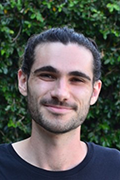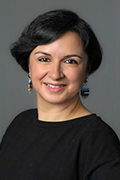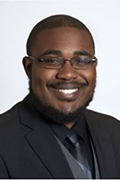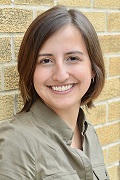Postdoctoral Fellows

Stephen Antonoplis, PhD
Education:- 2022 – PhD, University of California, Berkeley, Social–Personality Psychology
- 2016 – BA, Northwestern University, Psychology, Economics (minor)
Stephen Antonoplis is a post-doctoral scholar in the Lifespan Personality and Health Lab. His research broadly focuses on the interplay of personality and social structure, with specific focuses on the development of cross-race relationships in personal networks and on the mutual effects of socioeconomic conditions and personality. He also maintains a strong interest in the philosophy and practice of measurement, having done work on the conceptualization and measurement of socioeconomic status and on the measurement of personality traits using self-report methods. His current projects include examinations of changing racialization’s impact on mortality, the relationship between personality traits and socioeconomic outcomes across the lifespan and during recessions, and equating measures in coordinated data analysis.

Berivan Ece Usta, PhD
berivan.eceusta@northwestern.edu
Education:- 2014 – PhD, Koc University, Istanbul, Cognitive Psychology
- 2010 – MA, Bogazici University, Istanbul, Cognitive Psychology
- 2002 – BA, Bogazici University, Istanbul, Psychology
- 2002 – BA, Bogazici University, Istanbul, Sociology
My research interests include autobiographical memories, false memories, earliest memories, developmental trajectories of memory processes and executive functions together with assessment strategies to explore them. Currently, we are working on a research design to test the feasibility and validity of remote assessment of anthropometrics and cognition data elements in children. The goal of this research is not only to validate certain measures for the remote assessment of anthropometrics and cognition but also to increase diversity in sample characteristics and reduce health disparities for populations who have limited or no access to in-person assessment.

Michael G. Curtis, PhD
Michael.Curtis@northwestern.edu
Education:- 2022 – PhD, University of Georgia, Human Development and Family Science
- 2017 – MS, University of Nevada, Las Vegas, Marriage, and Family Therapy
- 2015 – BS, University of Nevada, Las Vegas, Psychology
My research focuses on investigating the stress processes linking intersectional-traumatic stress to the men’s increased risk of HIV exposure, substance use, and mental health problems among Black American sexual and gender minorities. I am particularly interested in the protective effects of romantic relationships during emerging adulthood on these processes as it is a largely understudied yet highly important context within which health inequities can be perpetuated, exacerbated, or mitigated. Dr. Gregory Phillips II and I are currently working on several projects to understand the impacts of stigmatization on use of pre-exposure prophylaxis (PrEP) continuum of care engagement among Black American sexual and gender minorities.

Brittany Manning, PhD, CCC-SLP
brittany.manning@northwestern.edu
Education:- 2021-2022 – Postdoctoral Fellowship, Weill Cornell Medicine, Center for Autism and the Developing Brain
- 2021 – PhD, Northwestern University, Communication Sciences and Disorders
- 2012 – MS, University of Wisconsin-Madison, Communicative Disorders
- 2010 – BA, University of Wisconsin-Madison, Communicative Disorders
In my research, I aim to identify early brain and behavioral precursors of later childhood disorders, in order to maximize children’s opportunity to benefit from early intervention. I am a licensed speech-language pathologist, and my research to date has focused on examining early predictors of language impairment in children with developmental language disorder and autism spectrum disorder. I am excited to join the team at Medical Social Sciences where I hope to investigate the overlap between early mental health and language risk factors and telepractice as a method for increasing access to clinical services.

Kyle Nolla, PhD
Education:- 2021 - PhD, Northwestern University, Psychology
- 2021 - MS, Northwestern University, Statistics
- 2017 - MS, Northwestern University, Psychology
- 2015 - BA, University of Chicago, Psychology
I work with Drs. David Cella and Michelle Langer on projects regarding patient-reported outcomes measures (self-report data collected from patients about their health.) My work involves in-depth literature review, study design, data analytics, and writing. I use both quantitative approaches to data modeling and psychometrics as well as qualitative approaches to data collection through interviews and usability testing. Recent projects of interest include: 1) development of a gamified web app for symptom monitoring in patients with advanced cancer; 2) a clinical user experience survey of real-world PROMIS users; 3) a review of recent advanced kidney cancer treatments. My graduate work focused on how gender impacts video game expertise development.

Gabrielle N. Pfund, PhD
gabrielle.pfund@northwestern.edu
Education:- 2022 - PhD, Washington University in St. Louis, Psychological & Brain Sciences
- 2021 - MA, Washington University in St. Louis, Psychological & Brain Sciences
- 2018 - BA, Pepperdine University, Psychology (Honors) and Hispanic Studies
Gabrielle Pfund (she/her) is a postdoctoral researcher in the Lifespan Personality and Health lab. She received her PhD in Psychological & Brain Sciences from Washington University in St. Louis in 2022 and a BA in Psychology & Hispanic Studies from Pepperdine University in 2018. During her graduate training, her research focused on the measurement, development, and implications of sense of purpose across the adult lifespan. Thanks to the ThinkSwiss Research Scholarship, Gabrielle was able to spend three months in Switzerland learning about personality processes and successful aging while at the University of Zurich. This experience sparked her interest in the bi-directional associations between personality and health across the lifespan, leading her to her new lab.